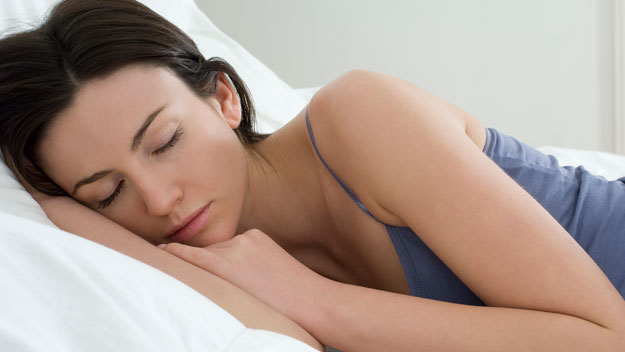6 Simple Steps To Better Sleep

These days, those who work in the bed and the mattress retail industry are expected to be far more than simple sellers of sleeping tools. According to the experts at Stay In Bed, more customers than ever before are reaching out to bed specialists not only to purchase beds and mattresses, but to gain valuable insights with regard to improved sleep.
It’s no secret that the vast majority of adults and kids alike don’t get nearly the right amount of sleep…as recommended by official guidelines. But while there are so many distractions that prevent so many from getting the sleep they need, it’s even more frustrating for those who desperately try to clock up their nightly hours though never fail to fall short of the mark.

Of course, there’s a huge difference between a problem sleeper and a full-scale insomniac – the latter always being advised to seek professional assistance and support. But for those who simply struggle to nod off on a regular basis and would like to improve their sleeping habits, there are six simple steps most experts swear by when it comes to effective DIY remedies:
First up, going to bed earlier might sound like a tip that’s so obvious it’s bordering on the insulting. However, while the mechanics of going to bed earlier are plainly apparent, it’s the psychological side of things that can pack the most beneficial. If you have trouble sleeping, you’ll worry about sleeping – and this will prevent you from sleeping. You’ll watch the clock, you’ll count the hours and you’ll panic about being tired the next day. However, go to sleep a couple of hours earlier and the fact that you’ve got something of a ‘safety net’ will relax your mind, which will relax your body and help you fall asleep faster. It really can work wonders – try it out for yourself and see.
A very 21stcentury problem if ever there was one, studies have shown how there is indeed a direct link between the use of mobile devices or touch screens and the ease with which we fall asleep. It’s no secret that getting all worked up over a movie or computer game can make nodding off hard, but apparently it goes way deeper than that. Tests have shown how a certain type of light called ‘blue light’ that’s emitted from the screens of smartphones, tablets and other devices stimulates the brain in a way that makes it harder to get to sleep. So the advice is simple – shut your devices down long before you plan on shutting yourself down!
Considering the fact that we spend a third of our lives in bed, the way in which so many overlook the importance of a quality bed and mattress is mind-blowing. It’s not rocket science – the comfier you are, the easier you’ll get to sleep and the better you’ll sleep throughout the night. From lumpy pillows to work mattresses to squeaky frames and so on, anything that can keep you awake probably will, so why bother?
Even the best bed and mattress in the world will be all-but useless if then paired with a set of cheap synthetic bedding that has you sweating half to death in a sticky mess all night. There’s a good reason why some bedding costs far more than others – not all sheets, cases and covers are cut from the same cloth. Quite literally in fact, so be sure to explore the world of cottons, bamboos and other materials to find something that’s as dreamy-comfy as it needs to be.
Those who fail to sleep with ease tend to be affected more by light pollution than others – even if they’re not aware of it. So rather than running the risk of being disturbed by the street lights outside or the early summer sunrise, consider investing in a set of blackout blinds to bring real pitch darkness to the whole room.
Last but not least, there are various different breathing exercises that are often prescribed or recommended by doctors to those with light to moderate sleeping difficulties. Take a look on the web and you’ll see just how many there are, though it’s of crucial importance not to even think about trying any of them until you first speak to your doctor. They may recommend anything from yoga to meditation to certain types of exercise and so on – in any case, you’ll soon realise there are more ways than you’d have ever imagined to help aid a good night’s sleep.
